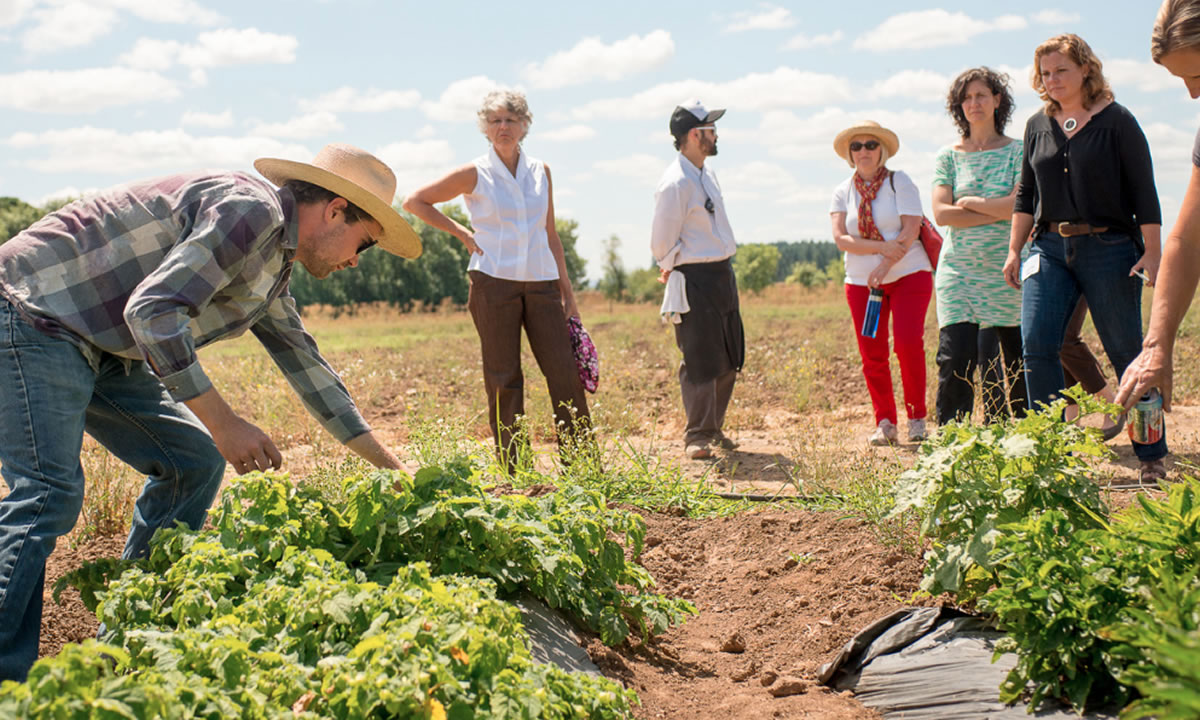This issue of In Good Tilth highlights the power of institutions to support a healthier, more resilient food system and how they can help communities take responsibility for sustainable practices. Each and every day, food service operators serve meals to people in diverse settings.
Many students eat daily meals at K-12 school cafeterias. Hospital patients, their visitors and healthcare staff rely on dining services for nutritious food. Colleges and universities serve thousands of meals in campus dining halls. Seniors at assisted living centers, inmates at correctional institutions, employees at corporate campuses, guests at event venues – they all depend on food service for their daily sustenance.
Oregon Tilth believes protecting nature and public health is everyone’s responsibility. We believe our food choices affect our land. And we approach our work by developing collaborative partnerships that increase access to resources and expertise.
Informed by these principles and in recognition of the significant role food service plays, the Northwest Food Buyers’ Alliance (NWFBA) was established in January 2013. The NWFBA is a peer-to-peer network of food service staff working together to increase demand for sustainably produced foods, improve food quality, educate the public and bolster the regional economy.
The NWFBA is coordinated and supported by a coalition of organizations, including Ecotrust, Healthcare Without Harm, the Oregon Department of Agriculture and Oregon Tilth.

We encourage learning to build knowledge and skills that seek solutions. Members meet several times a year to share ideas and best practices, visit farmers and food service facilities, meet local vendors and train staff. We know we can achieve more together than we can alone. Members leverage their purchasing power to increase transparency on the source and production practices of the food that suppliers offer.
We believe knowledge leads to positive choices, better practices and transformational change. Members share challenges and successes for regional and sustainable food purchasing. They discuss how to build menus based on what’s in season, source from the many and not just the few, and celebrate all that the Pacific Northwest has to offer.
In just a few years, NWFBA has shown the scope and impact these efforts can have in changing the culture of food and agriculture. Currently, there are 56 participating institutions, represent- ing 125,000 meals served per day. From 2013-2014, we saw a 300 percent increase in local purchasing by participating institutions.
In October 2015, NWFBA convened a Local Link event in Portland, OR. The event brought together 34 vendors and 50 attendees.
Regional producers had the opportunity to connect with buyers representing schools, hospitals, assisted living facilities, county justice departments, colleges and corporate cafes like airbnb and Intel. Buyers learned about and sampled products from local farmers, ranchers, fishermen, specialty producers and distributors.
We heard about great connection stories, including hospitals getting excited about locally produced veggie burger mix and schools planning a bison burger lunch. Breakout sessions initiated lively conversations about working with farmers transitioning to organic practices and brainstorming innovative ways that institutions can support producers.
Ultimately, NWFBA strives to elevate the task of food procurement beyond a merely transactional exchange, meeting basic needs and viewing food simply as fuel for the body. We seek to develop a deeper relationship between people, food and place.
As we grow the network, NWFBA will continue working together to build healthier, more resilient communities by sourcing and serving good food from within our regions.



















